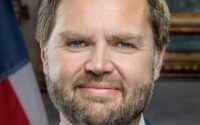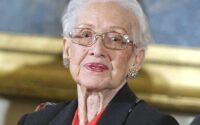Ndaba Gaolathe Biography: Early Life, Career, Age, Family
Ndaba Gaolathe is a prominent figure in Botswana’s political and economic spheres, currently serving as the Vice-President of Botswana and Minister of Finance. His journey from a young scholar in the United States to a key political figure in Botswana reflects his commitment to public service and economic development. As the son of Baledzi Gaolathe, a respected former finance minister, Ndaba has followed in his father’s footsteps while carving his own path in Botswana’s dynamic political landscape. This biography explores his early life, education, political career, economic policies, and his role in shaping Botswana’s future.
Early Life
Ndaba Gaolathe was born on September 5, 1971, in Gaborone, Botswana. His father, Baledzi Gaolathe, was a respected finance minister in Botswana. Growing up in Gaborone, the capital city, he was exposed to the intricacies of public service from an early age. Baledzi served as Botswana’s Minister of Finance and Development Planning from 1999 to 2009, a role that significantly influenced Ndaba’s interest in economics and governance. Ndaba’s childhood was spent in Gaborone, where he attended Lesedi Primary School and later Gaborone Secondary School. These institutions provided him with a solid educational foundation, fostering his analytical skills and curiosity about economic systems.
During his formative years, Ndaba was known for his academic excellence and leadership qualities. His early exposure to Botswana’s political environment, coupled with his father’s legacy, instilled in him a sense of responsibility to contribute to the nation’s development. Despite his privileged background, Ndaba remained grounded, focusing on education as a pathway to making a meaningful impact. As of September 2025, Ndaba Gaolathe is 54 years old, having celebrated his birthday just days ago on September 5.
Education
Ndaba Gaolathe’s pursuit of knowledge took him to the United States, where he enrolled at George Washington University in Washington, D.C. There, he earned a bachelor’s degree in economics, graduating with a deep understanding of global economic systems and policies. His time at George Washington University exposed him to diverse perspectives on economic development, which would later shape his approach to governance in Botswana.
Determined to further his expertise, Ndaba pursued a Master of Business Administration (MBA) with a focus on finance at The Wharton School of the University of Pennsylvania, one of the world’s most prestigious business schools. He completed his MBA in 1997, equipping him with advanced skills in financial management, strategic planning, and economic policy formulation. His education at Wharton honed his ability to analyze complex economic challenges and devise practical solutions, skills that would prove invaluable in his political career.
Professional Beginnings
Before entering politics, Ndaba Gaolathe worked in various capacities that leveraged his economic expertise. He held positions in financial consulting and economic policy analysis, both in the United States and Botswana. These roles allowed him to apply his academic knowledge to real-world challenges, particularly in the areas of fiscal policy and economic development. His professional experience strengthened his understanding of Botswana’s economic landscape, including its reliance on diamond mining and the need for diversification to ensure sustainable growth.
Gaolathe’s work in the private sector also gave him insights into the challenges faced by businesses in Botswana, such as access to capital and regulatory constraints. These experiences shaped his later political agenda, which emphasized economic reforms to foster entrepreneurship and job creation. His ability to bridge theoretical economics with practical policy solutions became a hallmark of his leadership style.
Political Career
Ndaba Gaolathe’s political journey began with the Botswana Democratic Party (BDP), the country’s ruling party since independence in 1966. As a member of the BDP, he gained valuable experience in Botswana’s political system and contributed to discussions on economic policy. However, ideological differences and a desire for more progressive reforms led him to leave the BDP and join the Botswana Movement for Democracy (BMD) in 2010.
The BMD, founded by Gomolemo Motswaledi, was a splinter group from the BDP that sought to challenge the status quo and promote democratic reforms. Gaolathe quickly rose through the ranks, becoming a prominent voice within the party. Following Motswaledi’s tragic death in a car accident in 2014, Gaolathe assumed leadership of the BMD. Under his leadership, the party focused on social justice, economic diversification, and transparent governance.
However, internal conflicts within the BMD prompted Gaolathe to make a bold move in 2017. He left the party and founded the Alliance for Progressives (AP), a political movement centered on social liberal policies and economic reforms. The AP aimed to address pressing issues such as unemployment, inequality, and the need for economic diversification in a country heavily dependent on diamond revenues. Gaolathe’s vision for the AP was to create a modern, inclusive Botswana that prioritized the welfare of its citizens.
In 2024, Gaolathe made a significant decision to rejoin the Umbrella for Democratic Change (UDC), a coalition of opposition parties united in their goal to challenge the BDP’s dominance. His return to the UDC was seen as a strategic move to consolidate opposition forces and strengthen their chances in the national elections. Gaolathe’s leadership and economic expertise earned him the position of Vice-President of Botswana under the UDC government, as well as the role of Minister of Finance. In these roles, he has focused on implementing policies to stabilize the economy, promote sustainable development, and enhance social welfare.
Economic Reforms and Policy Vision
As an economist, Ndaba Gaolathe has consistently advocated for policies that address Botswana’s economic challenges. Botswana’s economy has historically relied on diamond mining, which accounts for a significant portion of its GDP and export revenue. While this has brought prosperity, it has also exposed the country to global market fluctuations. Gaolathe has emphasized the need for economic diversification, promoting sectors such as agriculture, tourism, and technology to reduce dependence on diamonds.
One of Gaolathe’s key policy proposals is the creation of an enabling environment for small and medium enterprises (SMEs). He believes that SMEs are critical to job creation and economic growth, particularly for Botswana’s youth, who face high unemployment rates. His policies include simplifying business regulations, improving access to credit, and investing in skills development to empower entrepreneurs.
Gaolathe has also championed social liberal policies, such as expanding access to education and healthcare. He has advocated for increased investment in vocational training programs to equip young Batswana with the skills needed for a modern economy. Additionally, he has pushed for reforms to address income inequality, including progressive taxation and social safety nets to support vulnerable populations.
As Minister of Finance, Gaolathe has focused on fiscal discipline while ensuring that public funds are allocated to priority areas such as infrastructure, education, and healthcare. His approach combines prudent financial management with a commitment to inclusive growth, earning him respect among both policymakers and the public.
Role in the Umbrella for Democratic Change (UDC)
Gaolathe’s return to the UDC in 2024 marked a turning point in Botswana’s political landscape. The UDC, a coalition of opposition parties, has long sought to challenge the BDP’s dominance and bring about democratic reforms. Gaolathe’s leadership within the UDC has been instrumental in unifying the coalition and presenting a cohesive vision for Botswana’s future.
As Vice-President, Gaolathe works closely with the President and other government officials to implement the UDC’s agenda. His role as Minister of Finance gives him significant influence over the country’s economic policies, allowing him to translate his vision into actionable reforms. Gaolathe’s ability to bridge ideological divides within the UDC has strengthened the coalition’s position and enhanced its appeal to voters.
Personal Life
Despite his public prominence, Ndaba Gaolathe maintains a private personal life. Little is known about his wife and children, as he prefers to keep his family out of the spotlight. His focus remains on his professional responsibilities and his commitment to serving Botswana. Gaolathe’s humility and dedication have earned him admiration from supporters and respect from political opponents.
Legacy and Impact
Ndaba Gaolathe’s journey from an economist to Vice-President of Botswana reflects his unwavering commitment to public service. His academic background, professional experience, and political leadership have positioned him as a transformative figure in Botswana’s history. By advocating for economic diversification, social justice, and democratic reforms, Gaolathe has inspired a new generation of leaders in Botswana.
His role as Vice-President and Minister of Finance places him at the forefront of Botswana’s efforts to navigate global economic challenges while promoting inclusive growth. As Botswana continues to evolve, Gaolathe’s vision for a prosperous, equitable, and sustainable future will likely shape the country’s trajectory for years to come.
FAQs
Who is Ndaba Gaolathe?
Ndaba Gaolathe is a prominent Botswana politician and economist, currently serving as the Vice-President of Botswana and Minister of Finance.
What is his educational background?
He holds a bachelor’s degree in economics from George Washington University and an MBA in finance from The Wharton School of the University of Pennsylvania.
What political positions has he held?
Gaolathe has served as a Member of Parliament, leader of the Botswana Movement for Democracy (BMD), founder of the Alliance for Progressives (AP), and is now Vice-President of Botswana and Minister of Finance.
What is his role in the UDC?
He serves as Vice-President of Botswana under the Umbrella for Democratic Change (UDC) and plays a key role in shaping the coalition’s economic and political agenda.
What are his key policy focuses?
Gaolathe advocates for economic diversification, support for small and medium enterprises, social liberal policies, and investments in education and healthcare.
Conclusion
Ndaba Gaolathe’s biography is a testament to his dedication to Botswana’s progress. From his early days in Gaborone to his rise as a national leader, he has consistently worked to address the country’s challenges through informed, inclusive, and forward-thinking policies. As Vice-President and Minister of Finance, Gaolathe continues to shape Botswana’s political and economic future, leaving a lasting legacy as a champion of reform and development.


